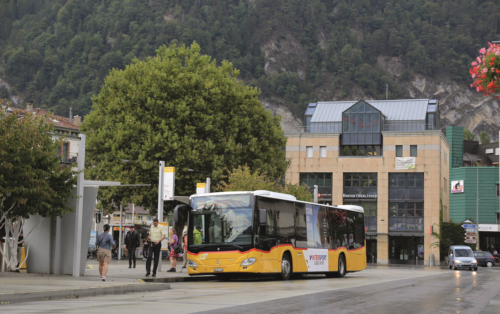
The Green Alliance says that an even lower fare cap and minimum guaranteed levels of service would improve bus use across England
As the country heads towards a general election, think tank Green Alliance has put forward a five-year plan for better bus services. Given that transport is the UK’s highest emitting sector, and even as more cars become powered by electricity, fewer car journeys will still be needed to meet net zero targets, the charity says.
It believes that achieving this goal continues to be a challenge as sustainable travel services, including buses, are being neglected in national transport strategy. The Alliance says that although before the pandemic 60% of all public transport journeys were made by bus, services in recent years have been in steady decline, fuelled by the severely negative impact of the pandemic; one from which they have not fully recovered.
The Alliance believes that the UK’s bus network is not operating as needed for a sustainable future or serving the communities it should, and that in many places, people see buses as unreliable or inconvenient whilst the different tickets and fares available can confuse passengers.
More appeal
But buses could be much more appealing to more passengers, the Alliance says, while simultaneously being a greener way to travel. It believes that within the five year period of a parliamentary term, bus services across England could be set on a strong path to revival and decarbonisation.
The Alliance has produced a detailed report which it says identifies phased interventions, along with suitable with funding options, which would lead to visible positive change for passengers and communities, while also encouraging those who avoid buses to start using them.
“We have consulted experts and organisations in the bus sector, including operators, local authorities and transport experts,” it says, “to reflect on what is not working, and what needs to change to bring passengers back on board and make buses part of the government’s plan to meet net zero targets. Our package of recommendations are outlined in a five year roadmap which is designed to keep fares down, change governance models and speed up the decarbonisation of the bus fleet.”
Public polling, carried out for Green Alliance by Public First, found that improving bus services is the most popular way to use local budgets to improve transport, ahead of road building.
The Alliance says that its measures would transform England’s buses into an efficient, modern and reliable service within five years, and that the plan is affordable, costed at just over £11 billion over the five years.
This cost could be recovered by reviewing current and future road building plans, it suggests, or reprioritising funds allocated for the most carbon intensive projects.
The five year plan suggests a decrease of the bus fare cap to £1 for five years; a change to bus governance models across the country to give local transport authorities more control; a long term settlement for bus funding; electrifing the national bus fleet; allocating support for priority measures to speed up bus journeys; and emulating Switzerland with a minimum standard level of service for the regions based on population size and local amenities. It cites as an example for the latter that the canton of Zurich, similar in density to South Yorkshire, provides at minimum an hourly service during core hours, equivalent to 12 buses a day.

